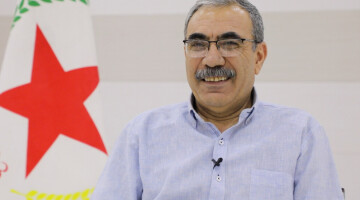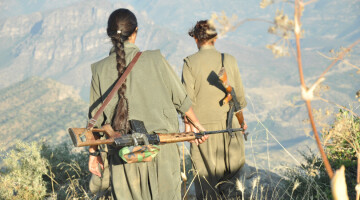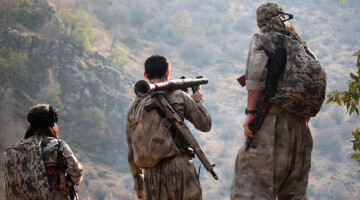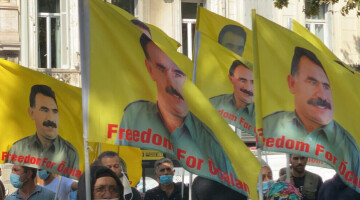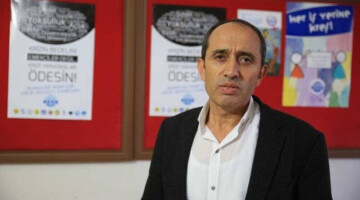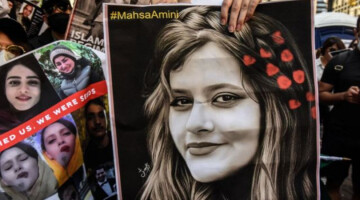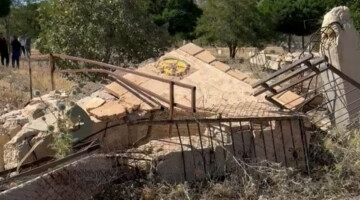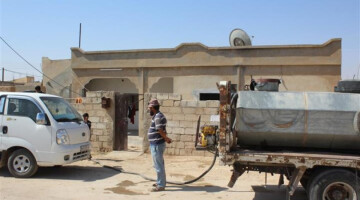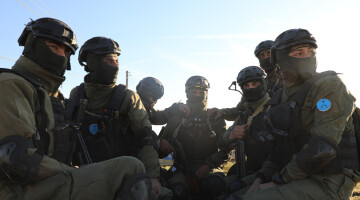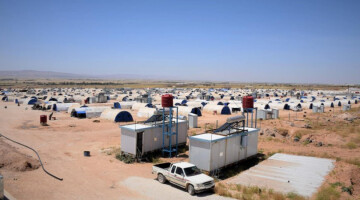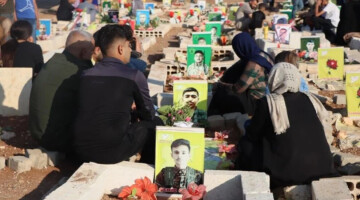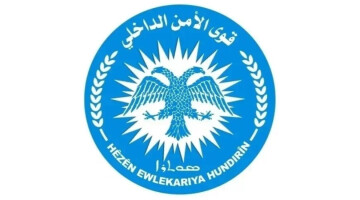In the presence of SDF Commander-in-chief Mazloum Abdi, alongside leaders of military councils representing provinces, regions, and factions, as well as officials from military offices and institutions, the SDF Military Council convened its regular meeting with all members in attendance.
The meeting commenced with a moment of silence to honor the fallen martyrs, followed by discussions and assessments of reports from military councils and institutions, along with an analysis of the current political and military landscape, as well as an analysis of the SDF’s performance over the past four months. Additionally, reports submitted by all military formations and institutions were reviewed during the meeting.
The meeting focused on recent developments in the region, including the ongoing Turkish airstrikes targeting infrastructure, ISIS activity, and attempts by the Syrian regime’s security forces to sow discord and support mercenary groups.
The meeting addressed potential Turkish aggression, particularly their attempts to gain international approval for a new offensive. Discussions centered on both military and public deterrence strategies. Additionally, the importance of diplomacy was emphasized, particularly with influential international players involved in the Syrian situation. The meeting urged these parties to resist Turkish pressure and blackmail for potential aggression. It was highlighted that Turkish military action without international support is unlikely to succeed, and resorting to military action without such support would be reckless. The Deir ez-Zor Military Council presented a detailed report on attacks by Syrian regime mercenaries. The meeting reaffirmed the right to defend the region and decisively counter any aggression. The unwavering support of the Deir ez-Zor people and tribal leaders in standing with SDF forces against destabilization efforts was commended. The importance of continued engagement with community leaders and addressing security and service needs for regional stability was emphasized. The meeting highlighted the importance of collaboration with the Coalition to combat ISIS, continued preemptive strikes against terrorist cells and increased military activity to prevent ISIS terrorist attacks.
On the organizational level, the meeting highlighted the success of intellectual and military training programs, particularly the role of military academies in developing fighters. All commanders were directed to intensify training and prepare skilled leaders in various specialties to meet the force’s needs.
The importance of a strong home front was emphasized. The meeting stressed the need to enhance relations between the forces and all segments of society, fostering everyone’s participation in defense efforts, countering subversion, and resisting unconventional warfare tactics.
The meeting addressed the need to adapt military operations to best serve the forces’ specific goals and objectives. Procedures to address those who deserted their self-defense duties were discussed, pending official directives. All councils were tasked with participating in measures to safeguard the 2024 agricultural season. At the end of the meeting, a future work plan was approved for the forces in general, to increase their readiness to work in all circumstances, deal with all situations, and always be prepared for the possibility of attacks on SDF regions by hostile parties.


